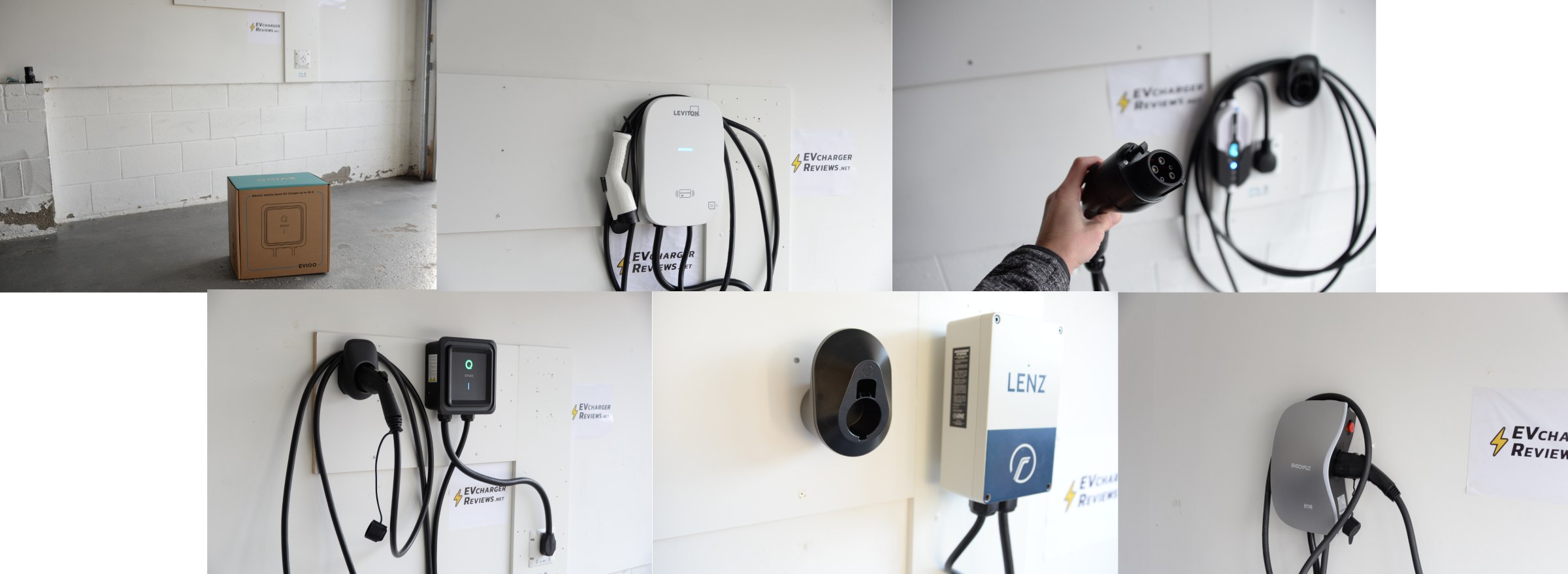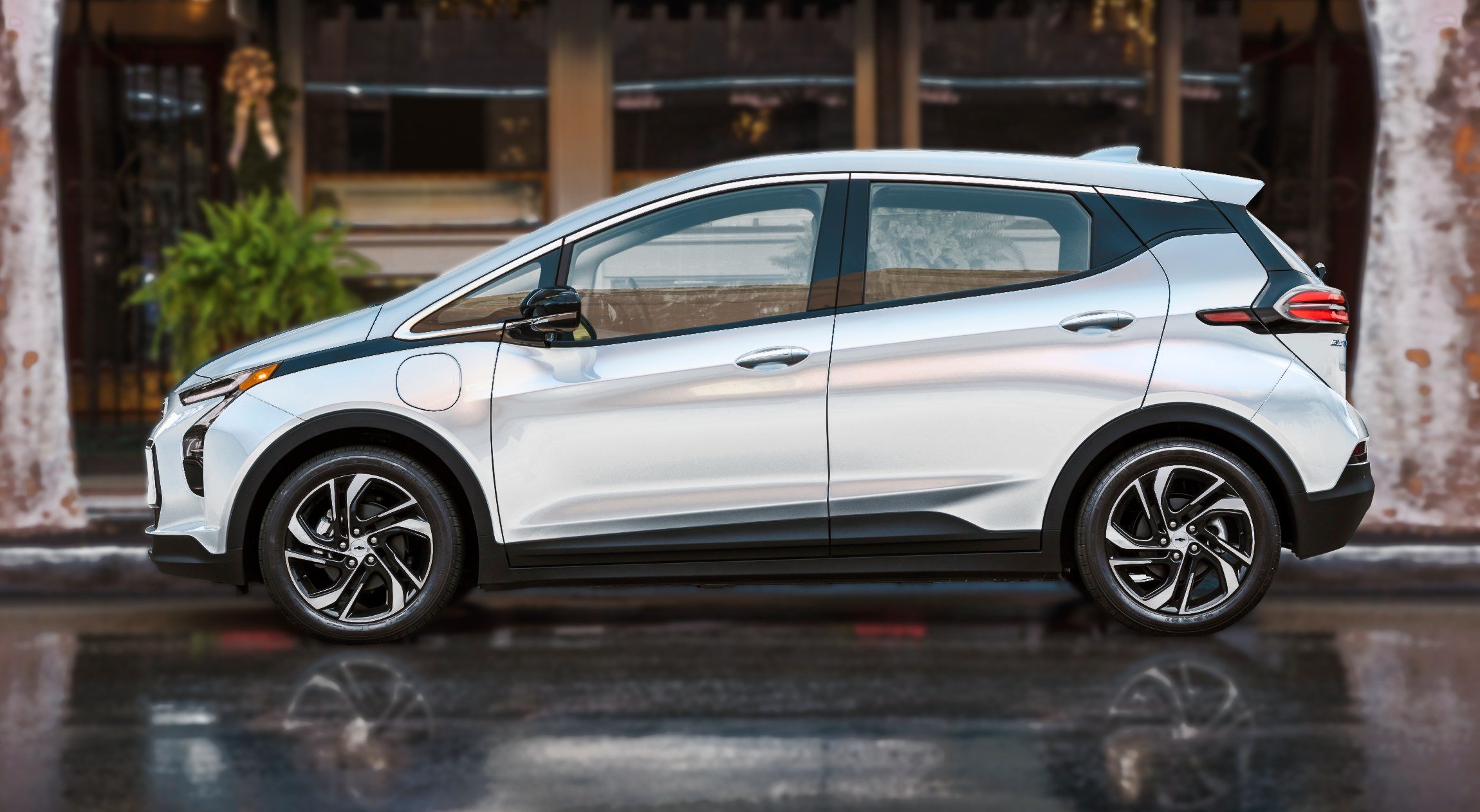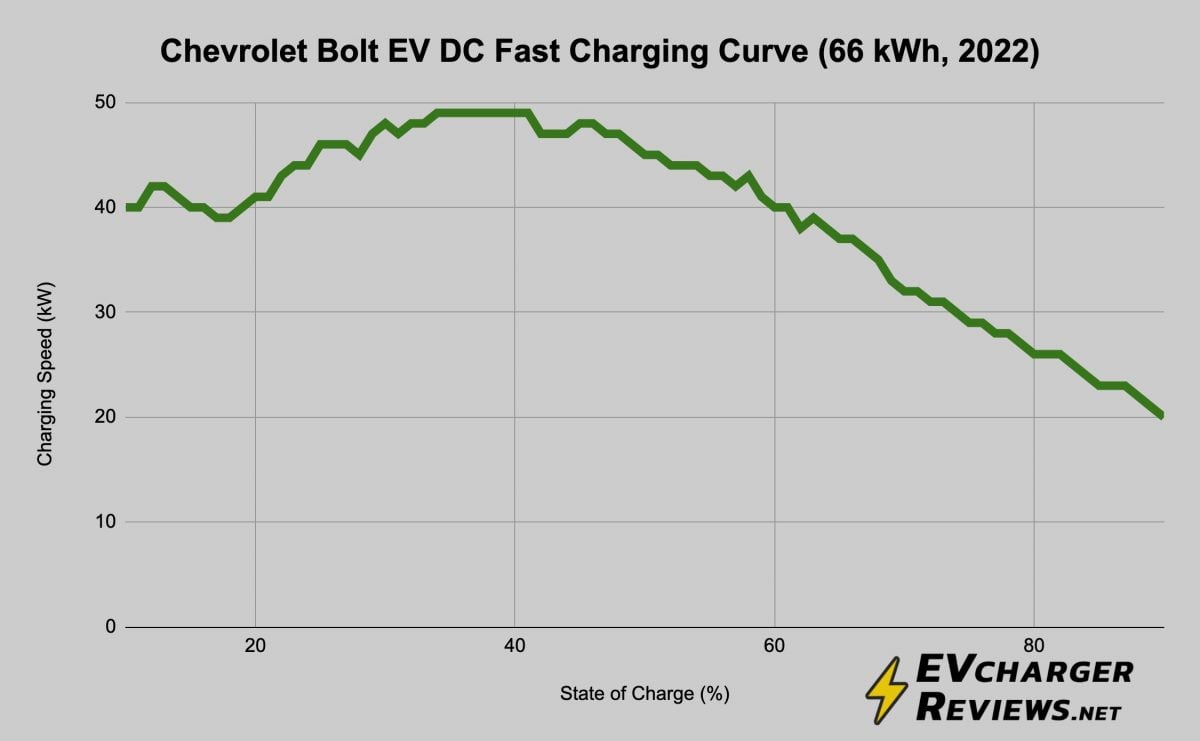EVchargerReviews is supported by our readers. We may earn commissions from links on this page. Why trust us?
Chevy Bolt EV/EUV Home Charging Guide
The Bolt EV is Chevy’s first mass-produced fully electric battery vehicle. First introduced as a 2017 model, the Bolt was later updated for 2022 with newer styling and onboard charging. The Bolt EUV was also introduced at that time, which offers a longer wheelbase and larger cabin.
Early Bolts have 60 kWh in battery capacity, but 2022+ models have larger 66 kWh batteries. North American Bolts use a familiar J1772 / CCS plug combination, making it easy to find chargers for home and on the road.
Original Bolts can charge at 32 amps (7.2 kW) at home, while the updated 2022+ version can accept 48 amps (11 kW). DC fast charging speeds peak at around 50 kW on Level 3 chargers.
Why Trust US? We have hands-on testing experience with the most popular EV charging products.
Chevy Bolt Charging Fast Facts
| EV Charging Connector | J1772 / CCS |
| Battery Capacity | 60 – 66 kWh |
| Level 2 Charging Power | 7.2-11 kW |
| Level 2 Max Amps | 32-48 A |
| Level 2 [20-80%] Charge Time | 4-6 Hours |
| Level 3 Peak Power | 50 kW |
EVIQO Level 2 EV Charger (48 Amp)
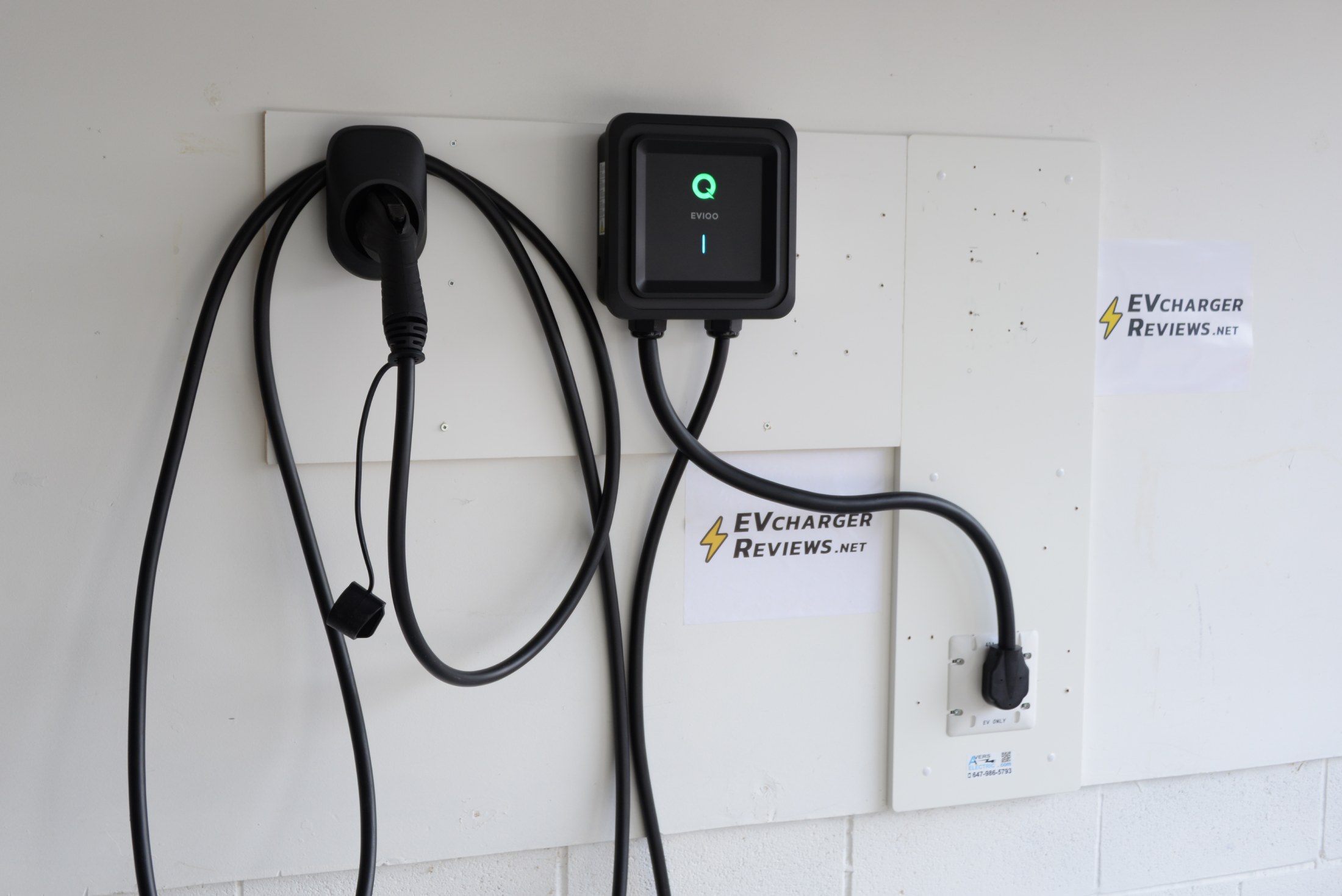
We were pleasantly surprised by EVIQO. As a newer company on the market, they have delivered a durable and smart product that hits on many common EV charging pain points. The hardware is great all around, quality cord components are used, and the EVIQO app is highly polished with notifications, stats, and detailed charging cost estimates. With 48 amp charging, owners of the newest Chevy Bolts can charge at maximum speed.
The design stands out from the rest, and the built quality is very good at this price point. We wish cord management was integrated into the main unit rather than an external holster, but we’re kind of nitpicking.
Specs
- Amperage: Up to 48 amps
- EV Connector: J1772
- Home Connection: NEMA 14-50 or hardwire
- Cord Length: 25 feet
- Cord Thickness: 18.5 mm
- Cord Gauge: AWG 9
- Weatherproofing:
NEMA 4 - Networking: Wi-Fi + BT
- App Control: Yes
- Warranty: 2 years
Pros
- Long input and output cables
- Great app with scheduling and cost reporting
- Metal J1772 clasp and release tab
Cons
- The cord is durable but the thickness can make it more difficult to handle
- The J1772 holster makes the cord stick out from the wall
Leviton EV48W Smart EV Charger (48 Amp)
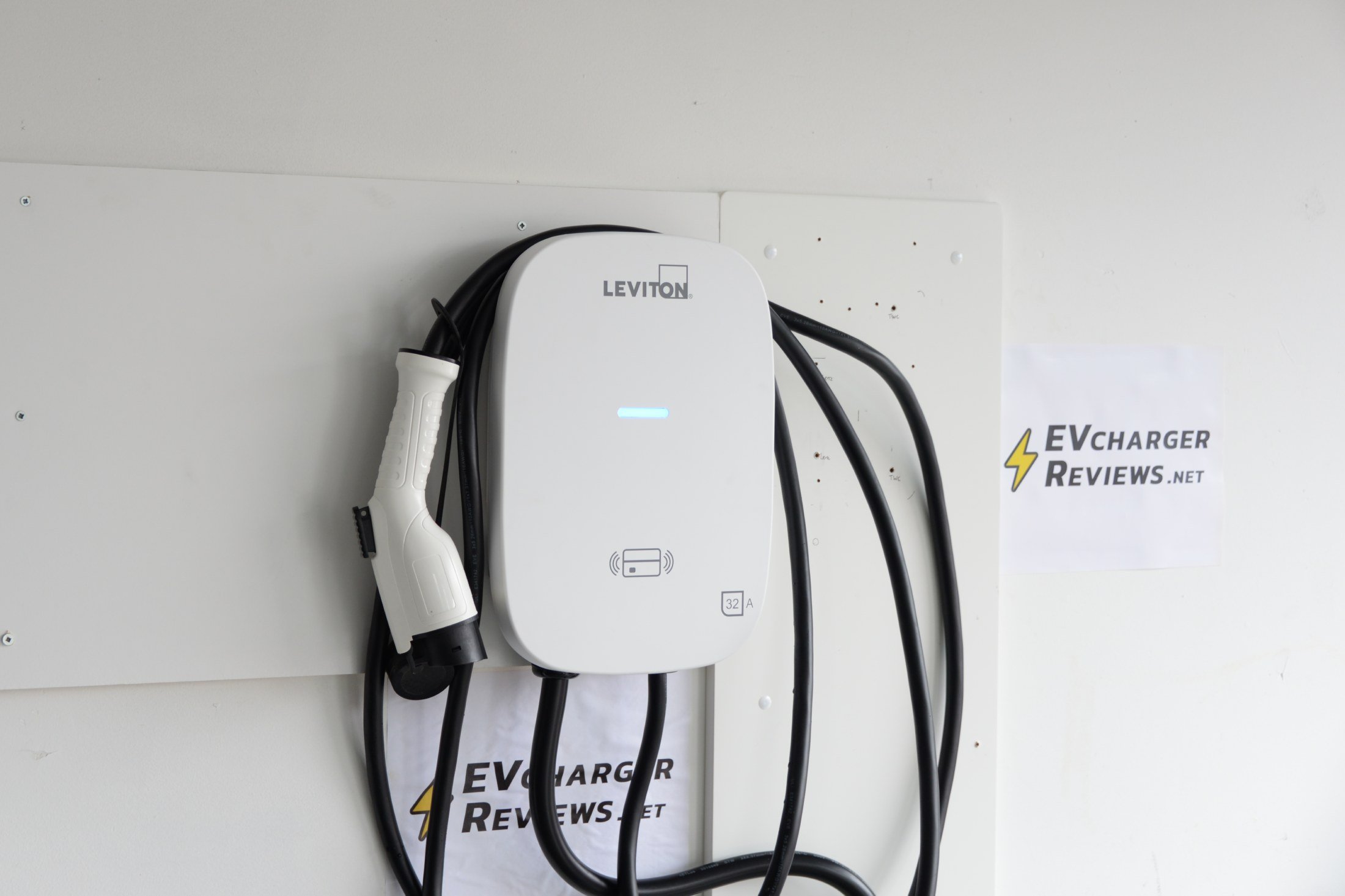
Leviton is a brand with a 100+ year history in home products, and their EV charging products demonstrate their commitment to safety. The EV48W is UL-listed and EnergyStar-certified, and comes with a high-quality charging cord and a durable J1772 connector. Our only complaint is that at 18 feet, the cord could be a little bit longer.
Leviton’s EV chargers integrate nicely with the My Leviton app and home automation features. If you’re using any Leviton smart home automation products, their charging station will be a great addition.
Specs
- Amperage: Up to 48 amps
- EV Connector: J1772
- Home Connection: hardwire-only
- Cord Length: 18 feet
- Cord Thickness: 16.1 mm (32 amp version)
- Cord Gauge: AWG 10 (32 amp version)
- Weatherproofing:
NEMA 3R - Networking: Yes
- App Control: Yes
- Warranty: 2 years
Pros
- Wi-Fi connectivity
- Works very well with Leviton’s home automation app
- RFID security access cards
Cons
- Cord shorter than competing products
- must be hardwired, no NEMA 14-50 plug-in option
LENZ Home EV Charger (40 Amp)
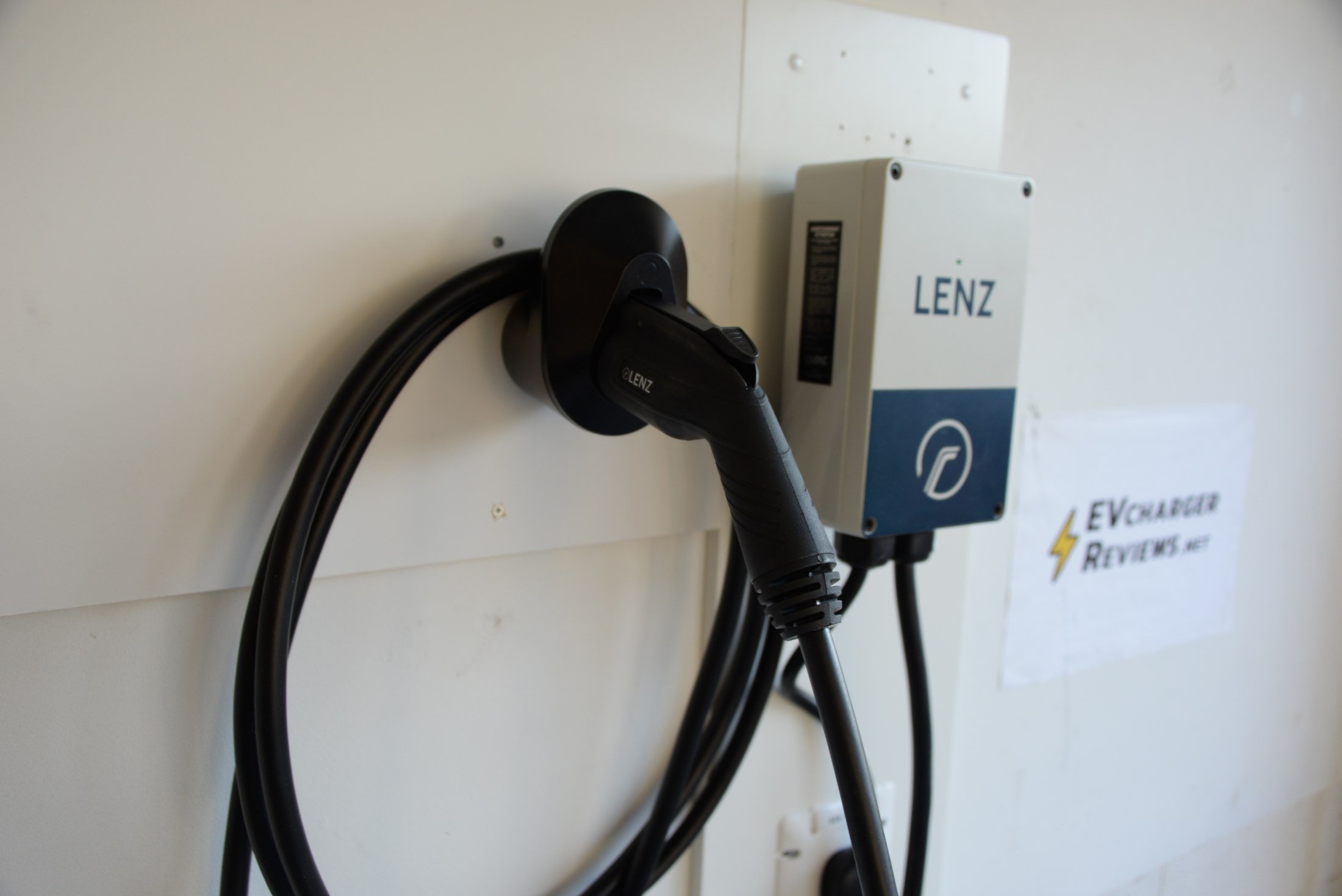
LENZ offers a fantastic 40 amp charging station for Bolt drivers looking for simplicity. This durable charging station is perfect for non-technical drivers transitioning to electric driving. The unit does not include any network connectivity or apps. Instead, it focuses on the fundamentals: safety, a durable weatherproof enclosure, and a good charging cord. For users with existing 240-volt outlets, installation is going to be a breeze.
The 40 amp output of LENZ’s charger provides enough current to charge the Bolt at the 9.6 kW peak rate.
LENZ is based out of California, they offer US-based support and a 3-year warranty in case something goes wrong.
Specs
- Amperage: Up to 40 amps
- EV Connector: J1772
- Home Connection: NEMA 14-50 or hardwire
- Cord Length: 24 feet
- Cord Thickness: 17.3 mm
- Cord Gauge: AWG 10
- Weatherproofing:
NEMA 4X - Networking: No
- App Control: No
- Warranty: 3 years
Pros
- Heavy-duty durable enclosure
- 24-foot-long cable made of pliable materials
- Easy installation, low learning curve
Cons
- No connected/smart features
- The holster makes the cord stick out from the wall
- The status LED is not very bright
Tera P01 Portable EV Charger (32 Amp)
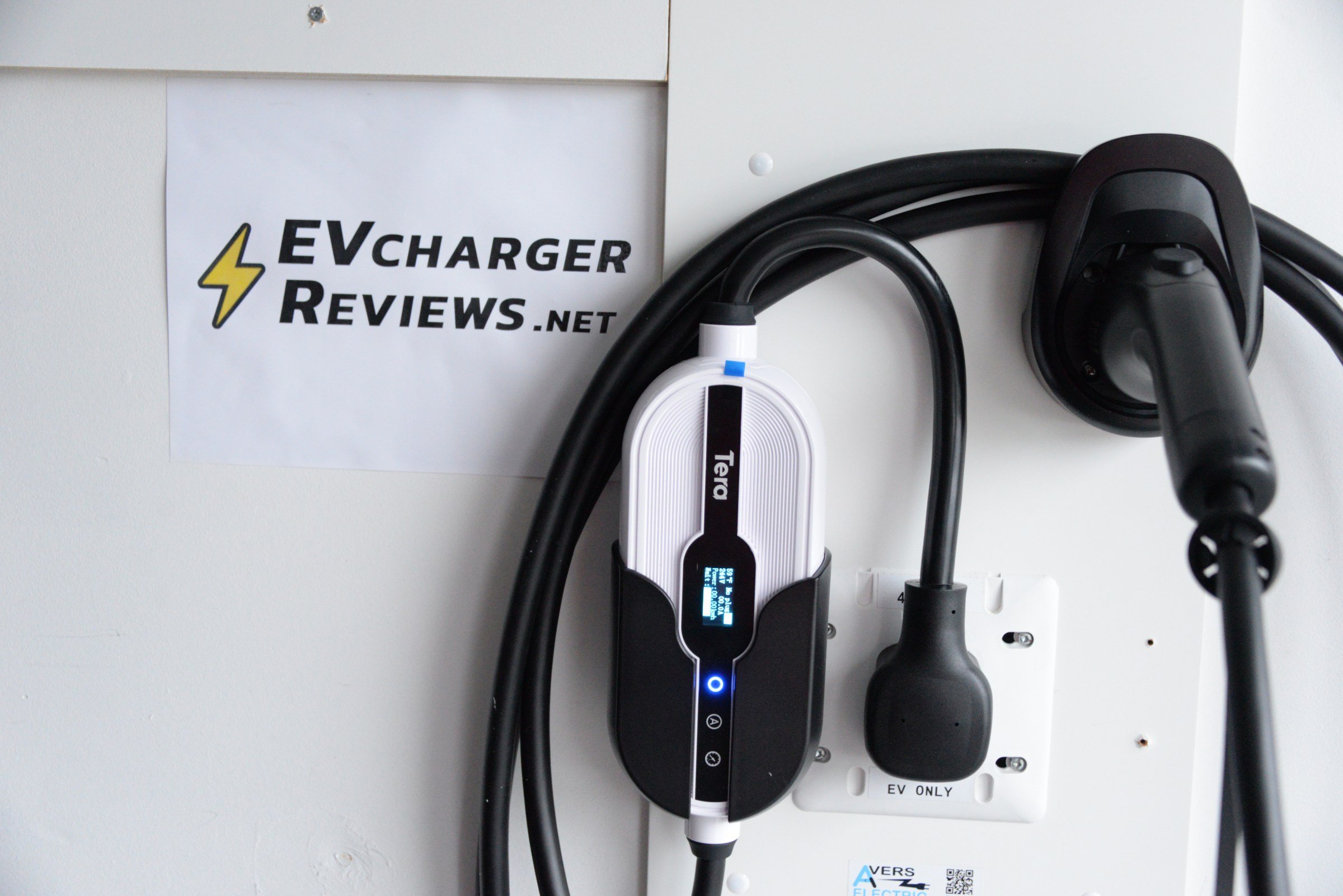
Chevrolet Bolt owners searching for a charging product they can use at home and on the road should consider the P01 from Tera. We have tested many portable EV chargers, and the product from Tera is a recent favorite because of its attractive design, durable cable, many adapters, and the ability to charge over 240 volts and 120-volt outlets.
It’s rare to see a portable charger with Wi-Fi connectivity as well. The charger pairs easily to their Smart Life app over Bluetooth and connects to your home Wi-fi network. The Tera portable EV charger has a J1772 to connect to EVs, but also includes a NACS adapter in the box.
Portable EV charges often suffer from overheating problems when charging at full speed, but we had no such issues with the Tera P01.
Specs
- Amperage: Up to 32 amps
- EV Connector: J1772
- Home Connection: NEMA 14-50
- Cord Length: 25 feet
- Cord Gauge: 10 AWG
- Weatherproofing:
IP67 - Networking: Wi-Fi + BT
- App Control: Yes
- Warranty: 5 years
Pros
- Portable
- Comes with adapters
- Clear LCD screen
- Wi-Fi connectivity
Cons
- NEMA 14-50 placement at the top of the box may limit mounting options
- “Smart Life” app is easy to use but feels incomplete
ShockFlo S1 EV Charger (48 Amp)
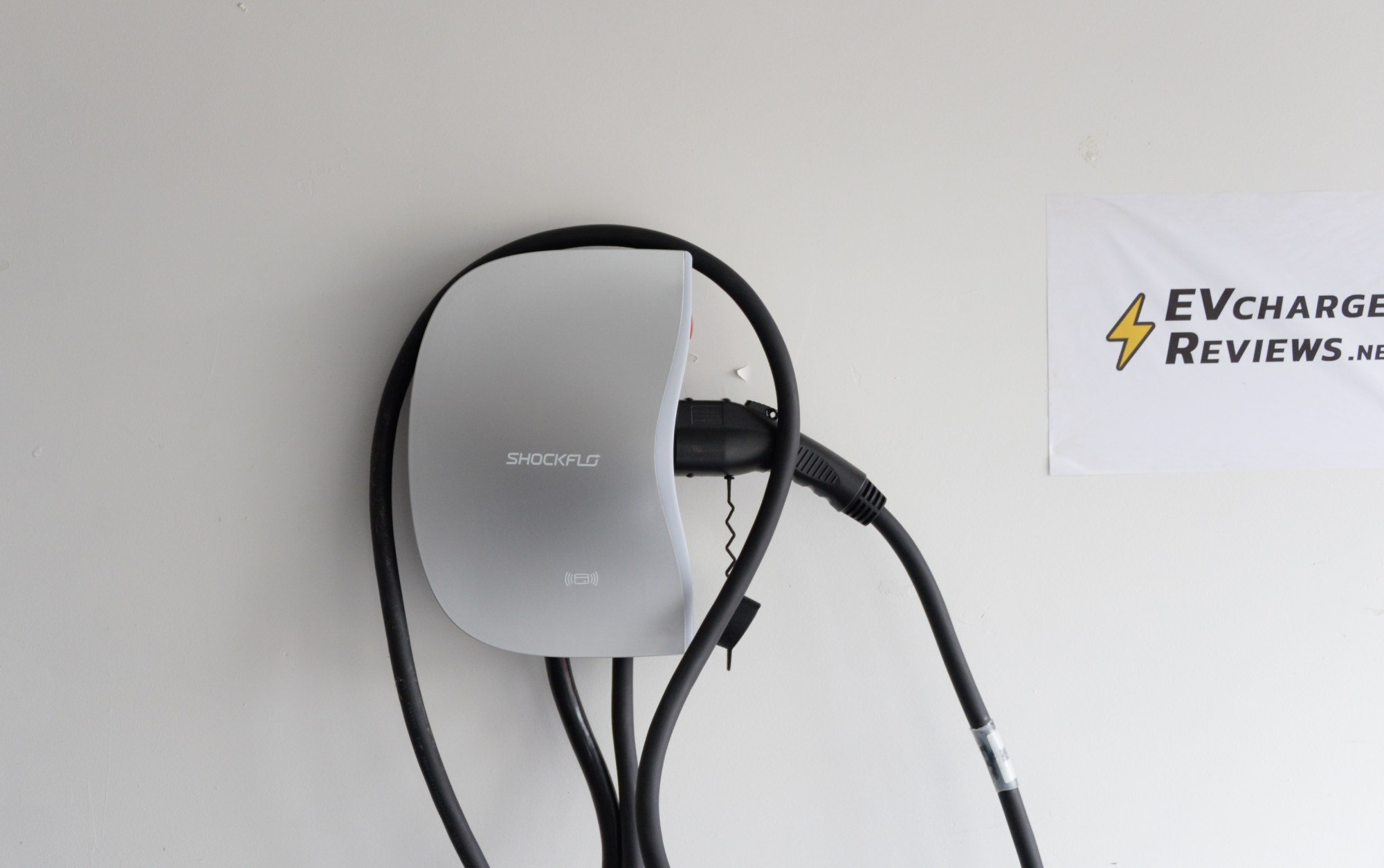
This ShockFlo S1 home EV charger is a newer product on the market, and it impressed us with a couple of standout features. We really like the integrated J1772 holster on the side of the unit, this helps cord management very tidy when not in use.
Many new charging stations include RFID card readers for security. In addition, this charger can be hardwired and configured to deliver the full 11 kW of power that 2022+ Bolts can accept.
Being a newer product, the app experience is not yet as polished as the competitors, but it does the basics well enough.
Specs
- Amperage: Up to 48 amps
- EV Connector: J1772
- Home Connection: NEMA 14-50, hardwire
- Cord Length: 17 feet
- Cord Thickness: 20.6 mm
- Weatherproofing:
IP65 - Networking: Wi-Fi + BT
- App Control: Yes
- Warranty: 3 years
Pros
- Choice of 48 amps hardwired or 40 amps on NEMA 14-50
- RFID reader with two cards included
- Side holster
Cons
- The charging cord is shorter than most competitors
- The companion app is functional but rather basic
Not sure about the recommendations above? You can view our full list of tested charging stations here.
Frequently Asked Questions about charging the Chevy Bolt EV
Yes, but availability may be very limited at this time. Only a select few Supercharger locations offer CCS “MagicDock” cords that are compatible with Bolts. Check availability in your area by downloading the Tesla app. More Supercharger locations are going to open to non-Teslas in 2025.
DC fast charging is limited to 50 kW. Unfortunately, this means longer charging stops on road trips compared to more modern electric vehicles. Chevy gave the Bolt a facelift for 2022, but DC charging speed was unchanged from the original model.
The 2017-2021 Bolts can accept up to 32 amps on Level 2 AC chargers. With the model year 2022 facelift, the Bolt EV and new Bolt EUV can charge at 48 amps.
The Bolt does not have battery preconditioning for fast charging. When it’s very cold, you could warm up the battery by driving on the highway for 20-30 minutes, if the remaining range allows. Discharging the battery by driving warms it up, and a warm battery charges faster during winter months.
It would take approximately 6.5 hours to fully charge a 66 kWh Bolt on an 11 kW (48 amp) charger, and 9.5 hours on a 7.2 kW (32 amp) charger. But in real-world usage, you would rarely ever need to charge the whole battery capacity in one session.
The charging location on the left-front fender area, just in front of the driver’s door. 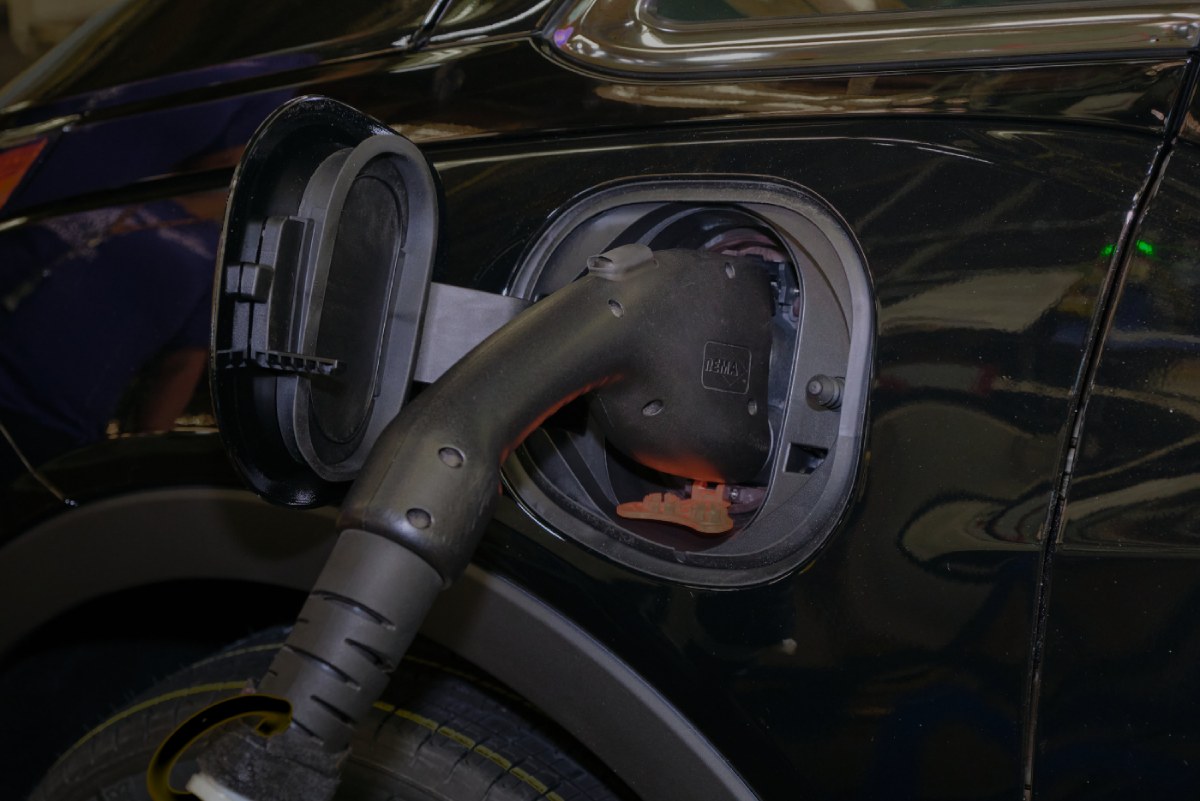
Why trust EVchargerReviews.net? The products we recommend are acquired and tested in our garage lab prior to making the recommendation list.
